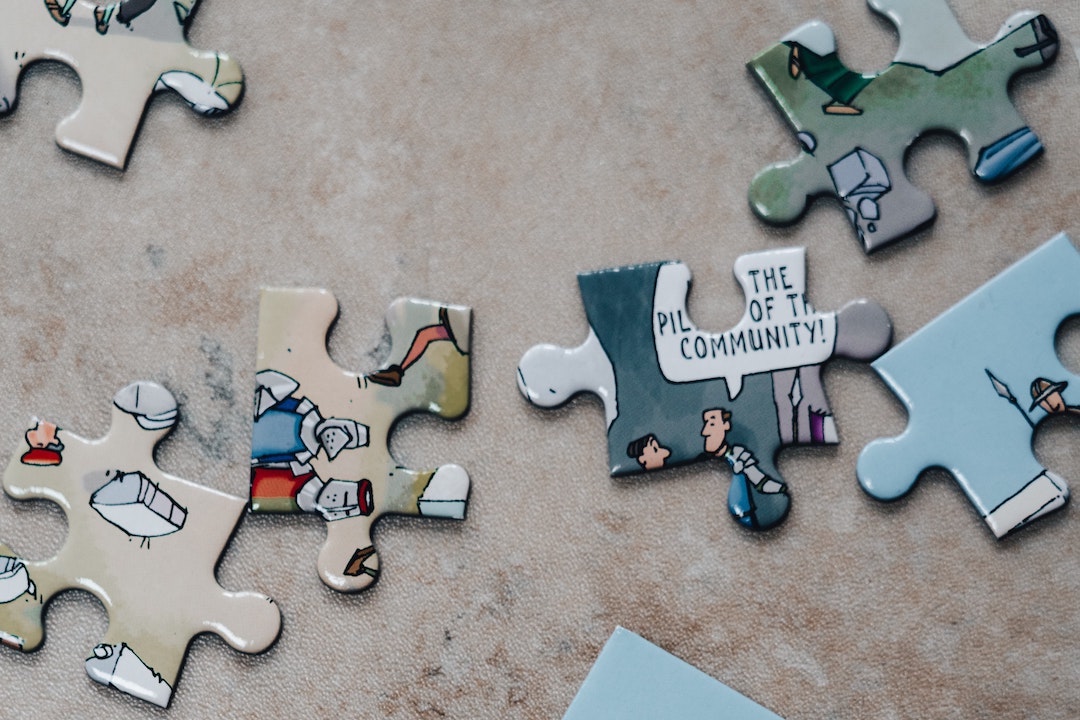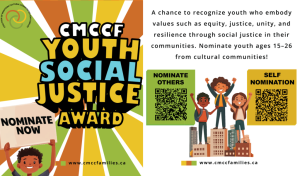
This is the document that was presented at our most recent Annual General Meeting of October 28, 2021, to establish our context as a coalition to collaborate with our communities to “create their future” while nurturing their identity.
Florence Okwudili, Chair of the Board and Martin Itzkow, CEO
Released October 28, 2021 at our Annual General Meeting
Thanks and Gratitude
At the outset of this document and our plea for the future, we would like to thank our funders who have assisted us to continue to support this platform of the Coalition of Manitoba Cultural Communities for Families (CMCCF). Thank you, the Winnipeg Foundation and the Winnipeg Suicide Prevention Network.
Our role as a coalition is to engage and empower communities’ voices to be informed about how they can influence public policy development and the practices of many diverse service providers. As well, we continue to ensure that there are deliberate engagement opportunities with both policymakers and service providers with our diverse network with respect to both their communities’ needs and communities’ strengths.
In that regard, we wish to thank the countless individuals who have given of their time, energy and hope for a better world for their cultural communities, as their act of citizenship. We know that they have actively contributed to the formation of our many new committees, working groups, roundtables, and Research Advisory Council. Our development of this structure, even in a difficult time of Covid, bodes well for our future engaged cultural community network.
Also, a special thank you to CMWI, the Canadian Muslim Women’s Institute, and specifically Zulaika Rahim and Yasmin Ali for their support to our continuing development. Zulaika has been instrumental in helping us manage our funds over the last three years.
Lastly, we would like to thank our board members and our colleagues of Steve, Maryam and Mihiret for their commitment to achieve our vision.
3 Key Questions to Consider as Communities Create their Future
This year we are posing three core questions for our network and our allies to consider. As some communities and their leaders may be facing an existential challenge to their sense of purpose in strengthening health and wellbeing, these questions invite reflection that will ultimately lead to the creation of strong, sustainable future cultures:
1.) Over the years, what has happened to our Manitoba cultural communities and
their traditional purpose?
2.) What is the most significant challenge facing community now?
3.) What would it take for cultural communities to develop plans to create their
futures, together?
A Paradigm Shift in Meaning-Making (their purpose) for Communities
Many cultural communities are now facing a paradigm shift. Unfortunately, we have continued to notice that for many cultural communities the belief that they “held their members in the community” is no longer true.
Let us explain what we mean.
In these times, before, during and potentially after the pandemic, many cultural communities have faced rapid secular, faith and relational change. They have therefore had to create a new landscape of meaning-making for their members and have had to consider new ideas of defining what it means to be a “community.”
They have begun to realize that they may not be meeting their members’ needs and/or may not be rejuvenating their community by encouraging younger and diverse members to identify with what they think community means and provides.
Our deeper exploratory question in response to this is: in these times, where do you find community?
There are now more options for individuals – who may see themselves as having multiple identities – to seek meaning in all kinds of different spaces, including virtually, and in many new contexts beyond traditional forms.
A fundamental question when we talk about being involved in community is: how does one give of oneself in service of something greater than oneself, and what might that mean for those left behind?
This question invites us to consider how communities can help people of all ages and experiences find and explore a deeper sense of belonging to something greater than themselves.
We know that, in the past, communities offered their members a role in developing their collective community, and in turn supporting their own families, throughout their lives.
Now, we must acknowledge that we are communities of individuals, seeking opportunities for our own personal and social transformation. This individualism challenges the traditional sense of collective responsibility to one another.
Furthermore, individuals are now seeking alternate spaces of psychological safety, where they can grow and be creative, clarify their own sense of purpose, receive structures of accountability and, most importantly, feel a sense of community connection.
The role of community leaders has changed too. Leaders were once trusted and respected; community members would come to them to seek answers to their biggest questions and support for their transitions in life. This may no longer be true in many communities.
All these challenges point to a further question: what does it mean now to live deeply connected to others?
What Loneliness Can Teach Us
We believe the role of a community might, in fact, lie in the very crisis that people in our cultural communities are facing. We believe that we are now in a crisis of isolation, where loneliness is leading to despair, and our social fabric may be fraying.
Recent statistics indicate that self-reported loneliness is an epidemic among immigrants, both those recently arrived and those who have been here long-term, with both categories reporting higher rates of loneliness compared to those born in Canada.
Research suggests that immigrants tend to report higher levels of both social and emotional aspects of loneliness, with a lack of intimate, close, personal connections. It seems that, in real terms, we have lost someone to care for us in the moments when we most need it. There is no one to rely on, no one to trust.
Statistics reveal that the feeling of loneliness does not decrease with time for immigrants. In addition, they face weakening ties with their country of origin, which further deepens a sense of isolation and loneliness.
It has long been proven that loneliness is associated with stress, depression and anxiety, as well as having other mental health impacts. Loneliness is also associated with various physical ailments such as cardiovascular disease, high cholesterol levels, high blood pressure, and increased morbidity and mortality rates. Social isolation worsens other conditions and challenges from addiction and domestic violence to diabetes. Ultimately, all these forms of loneliness have a bearing on the length and quality of life of our family members.
In the past, cultural communities played an important role for many new Canadians, addressing their disruption in social networks when newly arrived in Canada, by providing opportunities for new relationships and connections through community gatherings and events.
Unfortunately, this loss of social interaction magnifies an individual’s susceptibility to loneliness. While some groups may emphasize the importance of self-care in addressing loneliness and the related challenges, we place the focus on community care.
This focus leads us to explore some related questions:
- Are cultural communities able to meet this need?
- How are cultural communities facing their future, their identity, and their role in
- ensuring the health and wellbeing of their members?
- How are they addressing the changing environment where those who may see
- value in community have other options available to them to create other forms of
- community, which they may value even more?
Ubuntu as a Guiding Approach
In our view, CMCCF as a value-driven network of cultural communities would like to apply the concept of Ubuntu – “the quality of being human” – to respond to these current challenges. When we act upon a deep sense of being connected to others by our common humanity, when we truly regard self and other as one, when we cherish human dignity, all our relationships and the level of our behaviours and actions are raised to a much higher plane.
Ubuntu requires of us to activate these values in our communities: communality, respect, dignity, value, acceptance, sharing, co-responsibility, humaneness, social justice, fairness, personhood, morality, group solidarity, compassion, joy, love, fulfillment, and reconciliation.
Please join us in seeking Ubuntu together. We do this by seeking ways to contribute to our network and seeking ways in which we can support each other. For the various communities focusing on creating their future, we can seek ways to nurture their identity, and perhaps multiple identities, we can seek ways to increase diversity and inclusion in many parts of their communities, and we can ultimately seek to plan together.

To share your thoughts about this post or any of our other initiatives, fill out our contact form here or email us at hello@cmccfamilies.ca

 Next Post
Next Post
